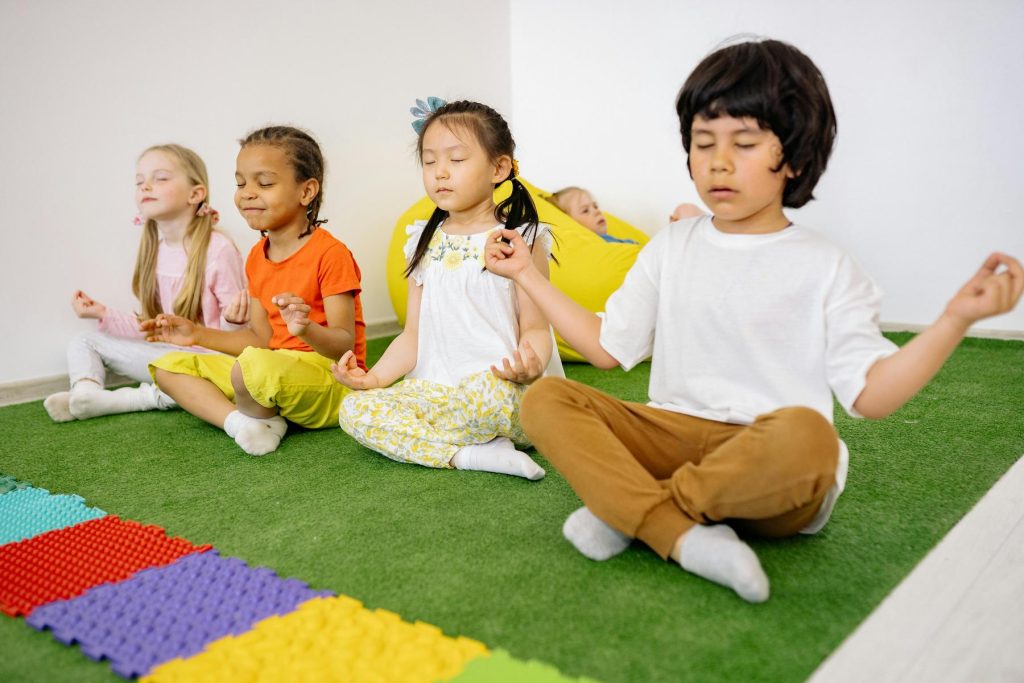Ever felt your heart racing before a big event or experienced a tightness in your chest during stressful times? You’re not alone. Anxiety can manifest in various physical ways, often making us feel like we’re on a rollercoaster of emotions and sensations. Let’s delve into the physical symptoms of anxiety, from chest tightness to fatigue, and explore how they impact our daily lives.
Understanding Anxiety’s Physical Grip
Anxiety isn’t just in our heads; it tangibly affects our bodies. Recognising these symptoms is the first step towards managing them effectively.
1. Cardiovascular Symptoms
When anxiety strikes, our heart often bears the brunt.
- Racing or Pounding Heart: Ever notice your heart feels like it’s beating out of your chest? That’s a common anxiety response.
- Chest Tightness: This can feel alarming, like a heavy weight pressing down.
- Rapid Heartbeat: Your pulse quickens, even when you’re at rest.
Key takeaway: Anxiety can make your heart work overtime, mimicking symptoms that are often confused with more serious conditions.
2. Respiratory Symptoms
Breathing changes are a hallmark of anxiety.
- Shortness of Breath: Feeling like you can’t get enough air.
- Quick Breathing: Your breaths become shallow and rapid.
- Difficulty Breathing: It might feel like a tight band is wrapped around your ribs.
3. Neurological and Sensory Symptoms
Anxiety can send your nerves into overdrive.
- Dizziness and Lightheadedness: Sudden spells that make you feel unsteady.
- Trembling: Uncontrollable shakes, especially in the hands.
- Pins and Needles: A tingling sensation, often in the extremities.
- Headaches: Tension headaches that can linger.
In summary: These symptoms are your body’s way of signalling that it’s in a heightened state of alert.
4. Muscular Symptoms
Tension manifests physically in our muscles.
- Muscle Tension: Tightness, especially in the neck and shoulders.
- Muscle Weakness: Feeling unusually fatigued or weak.
- Jaw Clenching: Often leading to soreness or headaches.
5. Autonomic Nervous System Responses
These are involuntary reactions controlled by our nervous system.
- Hot and Cold Flushes: Sudden changes in body temperature.
- Sweating: Excessive perspiration without physical exertion.
- Dry Mouth: A frequent need to hydrate.
6. Digestive Symptoms
The gut-brain connection is powerful.
- Churning Stomach: That uneasy, fluttery feeling.
- “Butterflies” in the Stomach: Common before stressful events.
- Nausea: Feeling sick can be a direct response to anxiety.
- Digestive Issues: Including upset stomach or changes in bowel habits.
Key point: Anxiety can significantly disrupt your digestive system, affecting your overall well-being.
7. Sleep-Related Symptoms
Anxiety doesn’t rest, even when we need to.
- Difficulty Sleeping: Trouble falling or staying asleep.
- Sleep Disturbances: Nightmares or restless sleep.
The Impact on Daily Life
These physical symptoms can be more than just uncomfortable—they can interfere with everyday activities.
- Work and Productivity: Fatigue and lack of concentration can hinder performance.
- Social Interactions: Physical symptoms may cause individuals to avoid social situations.
- Overall Quality of Life: Persistent symptoms can lead to a cycle of worry and physical distress.
Did you know? In Australia, 17.2% of people experience anxiety disorders. It’s even more prevalent among females (21.1%) and young adults aged 16-24, with almost 31.8% affected.
Taking the First Step Towards Relief
Recognising these symptoms is crucial. By understanding that these physical sensations are linked to anxiety, you can seek appropriate support.
Why Professional Support Matters
Addressing anxiety isn’t just about managing symptoms; it’s about improving your overall quality of life.
- Personalised Strategies: Everyone’s experience with anxiety is unique.
- Holistic Approach: Combining physical, emotional, and behavioural support.
At Ararat Wellness, we believe in empowering individuals to navigate their mental health journey with compassion and personalised care.
How do I know if my chest tightness is due to anxiety or something more serious?
Chest tightness can be a symptom of anxiety, but it’s essential to rule out other conditions. If you’re experiencing new or severe symptoms, it’s important to consult a healthcare professional.
Can anxiety cause long-term physical health issues?
While anxiety primarily affects mental health, chronic anxiety can contribute to physical health problems over time. Managing anxiety effectively can help mitigate these risks.
What are some immediate techniques to alleviate physical anxiety symptoms?
Techniques like deep breathing, progressive muscle relaxation, and mindfulness can provide short-term relief. For long-term management, consider seeking professional support.
Is it normal to experience multiple physical symptoms at once?
Yes, anxiety can manifest in multiple physical ways simultaneously. Each person’s experience is different, and symptoms can vary in intensity.
How does fatigue relate to anxiety?
Anxiety can be mentally and physically draining, leading to feelings of fatigue. Disrupted sleep patterns and constant stress can contribute to this exhaustion.



